
Goddess Snow and her close friends Ceara Lynch, Princess Rene, Astro Domina, Princess Meggerz and Sarah DiAvola have built a supportive underground punk scene of fetish content creators, empowering each other, their clients, fans and the rest of the adult population to engage in the fight for a shame-free, consensual, and safe exploration of one’s sexuality. Dancing between the worlds of online fetish content creation, and in-person domination sessions, Goddess Alexandra Snow has built a thriving empire which supports the empowerment of women, sex workers, and anyone who has ever felt like a misfit.
You May Also Like
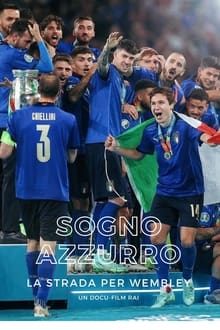
A docu-film that traces the victorious ride of Mancini’s Azzurri, from the debut match to the final against England. A troupe lived with the Azzurri for a month, to bring the spectators into the lives of the players and all the members of the staff, between training sessions, matches, travels and celebrations. An adventure told through the voices of the protagonists, who confided dreams, joys, pains and hopes to the cameras. “Blue Dream, the road to Wembley” is the completion of a project started a year ago together with the FIGC, to tell the national team’s approach to the European Championships through the 4 episodes aired in the days immediately preceding the European Championship, bringing the new television language of the docu-series to one of the most important time slots of the first generalist network. “Blue Dream, the road to Wembley” is a project of the New Formats Development Department
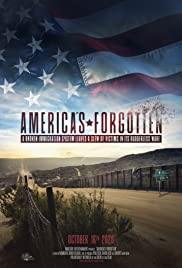
Film reveals the staggering human and material cost of illegal immigration to the U.S.A. Documentary is a raw depiction of death, torture and hardship suffered by Americans and foreigners due to illegal immigration.
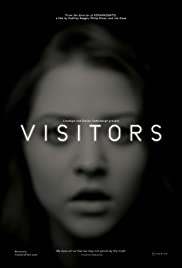
From the director of Koyaanisqatsi, an astonishing film that documents the drama of how we both live and witness what we experience. Shot in rich black and white Godfrey Reggio’s latest film finds the full spectrum of emotion in human faces, gorgeous landscapes and even the behaviour of an especially expressive gorilla.

The Real Bruce Lee is a martial arts documentary. It begins with a brief biography of Bruce Lee, and shows scenes from four of his childhood films, Bad Boy, Orphan Sam, Kid Cheung, and The Carnival, each sepia-toned and dubbed to English. Next, there is a three-minute highlight reel of Lee imitator Bruce Li. Finally, there is a feature-length film starring Lee imitator Dragon Lee, which is obviously modeled after Bruce Lee’s Fist of Fury.

They speak the same language, share a similar culture and once belonged to a single nation. When the Korean War ended in 1953, ten million families were torn apart. By the early 90s, as the rest of the world celebrated the end of the Cold War, Koreans remain separated between North and South, fearing the threat of mutual destruction. Beginning with one man’s journey to reunite with his sister in North Korea, filmmakers Takagi and Choy reveal the personal, social and political dimensions of one of the last divided nations on earth. The film was also the first US project to get permission to film in both South & North Korea.

Documentarian Richard Morris examines both the onstage and offstage lives of veteran cabaret entertainers John Wallowitch and Bertram Ross. Since 1984, Wallowitch and Ross have been a performing duo, entertaining nightclub audiences with such acid-tongued musical parodies as “If You Don’t Love Me, I’ll Kill Myself — Or Maybe I’ll Kill You” and “Don’t Do To Me What Woody Did To Mia.” Wallowitch and Ross have also been lovers for 30 years, who met while while both were active in the New York creative community; Ross spent close to three decades as a dancer with the Martha Graham company and Wallowitch is a Julliard-trained pianist and songwriter with over 1,000 compositions to his credit. Morris exmines Wallowitch and Ross both as artists and members of the gay community without patronizing or exploiting them in the process.
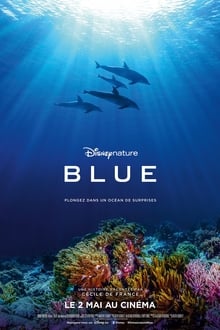
Echo is a youngster who can’t quite decide if it’s time to grow up and take on new responsibilities-or give in to her silly side and just have fun. Dolphin society is tricky, and the coral reef that Echo and his family call home depends on all of its inhabitants to keep it healthy. But Echo has a tough time resisting the many adventures the ocean has to offer.

In the feature documentary, Summer 82 – When Zappa Came to Sicily, filmmaker and Zappa fan Salvo Cuccia tells the behind-the-scenes story of Frank Zappa’s star-crossed concert in Palermo, Sicily, the wrap-up to a European tour that ended in public disturbances and police intervention. Cuccia had a ticket to the concert but never made it. Thirty years later, collaborating with Zappa’s family, he re-creates the events through a combination of rare concert and backstage footage; photographs; anecdotes from family, band members, and concertgoers; and insights from Zappa biographer and friend Massimo Bassoli. The story is also a personal one, as Cuccia interweaves the story of Zappa’s trip to Sicily with his own memories from that summer.

He’s our favorite veterinarian, and now we reveal what makes him so incredible. In this special program, Dr. Jan Pol shares his most intimate and life-changing moments – from his childhood in the Netherlands when the world was at war, to his move to the American midwest, and a love story fit for the movies – this is the story of his incredible life. (Disney+)
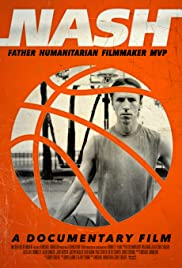
This coming of age documentary chronicles the life of NBA All Star Steve Nash as he tries to navigate his way through the somewhat toils of professional sports while trying to leave a lasting legacy on and off the court.

A team of 20 elite Nepali climbers venture into the Death Zone of Mount Everest to restore their sacred mountain and the contaminated water source of 1.3 billion people. They ascend the highest point on the planet to the 150 bodies of deceased climbers and 100,000 pounds of rubbish that remain on the high slopes of Everest. This is the self-documented story of their life-threatening journey.
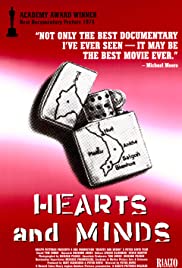
Many times during his presidency, Lyndon B. Johnson said that ultimate victory in the Vietnam War depended upon the U.S. military winning the “hearts and minds” of the Vietnamese people. Filmmaker Peter Davis uses Johnson’s phrase in an ironic context in this anti-war documentary, filmed and released while the Vietnam War was still under way, juxtaposing interviews with military figures like U.S. Army Chief of Staff William C. Westmoreland with shocking scenes of violence and brutality.